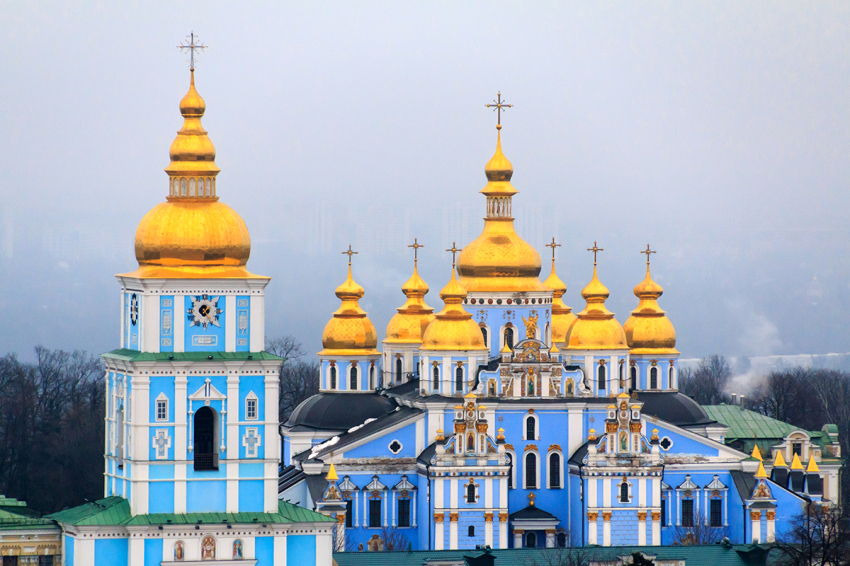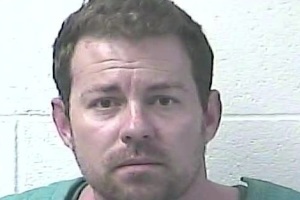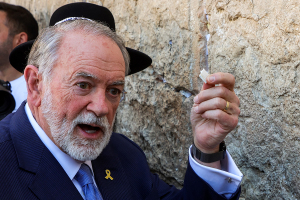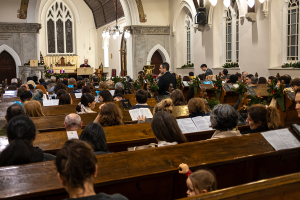UN raises concerns Ukraine is failing to protect rights of churches with Russian ties

The United Nations has raised concerns over Ukraine’s handling of religious rights, particularly for churches linked to Russia, detailing restrictions and threats to the safety of religious communities in the country, not only in Ukraine but also in Russia-occupied territories.
Tensions between the Ukrainian Orthodox Church and the Orthodox Church of Ukraine are growing, noted Ilze Brands Kehris, assistant secretary-general for human rights at the Office of the United Nations High Commissioner for Human Rights, at a U.N. Security Council meeting last week, according to a U.N. statement.
Since last February, OHCHR documented 10 cases of physical violence and six of threatened violence between different Orthodox communities, Kehris said, criticizing Ukrainian law enforcement for inadequate responses and failure to protect the Ukrainian Orthodox Church members.
Kehris also pointed to Ukraine Parliament’s draft amendments that could dissolve religious organizations with ties to countries in armed conflict with Ukraine. She urged lawmakers to ensure these measures are necessary, proportionate and in line with international human rights law.
In occupied territories, the Russian Federation is reportedly applying its own laws, leading to restrictions on religious minorities and alleged torture of clergy. Kehris called for all parties to respect international human rights law and ensure freedom of religion.
Vakhtang Kipshidze, vice-chairman of the Synodal Department for Church’s Relations with Society and Mass Media, Moscow Patriarchate, accused Ukrainian authorities of aiming to annihilate the Ukrainian Orthodox Church. He claimed that believers refusing to convert to the Orthodox Church of Ukraine face rights violations.
During a Security Council debate, the Russian representative alleged that Ukraine’s draft legislation would ban the Ukrainian Orthodox Church. He accused Western Council members of ignoring violence and threats against Orthodox Christians in Ukraine.
The United States’ delegate countered, accusing the Russian Federation of using the Council to spread disinformation and justifying its invasion as a holy war. He emphasized the need to focus on religious oppression in territories under Russian occupation.
Malta’s representative also criticized Russia for diverting attention from its aggression against Ukraine. France’s delegate agreed, urging Moscow to comply with international law, including Council resolution 2347 (2017), which states that attacking a religious site is a war crime.
Ukraine’s representative accused the Russian Orthodox Church of supporting Moscow’s aggression and participating in the occupation and annexation of Ukrainian territories. She defended Ukraine’s draft law as a measure to counter the use of religious organizations for aggression.
The U.N. also noted there have been nearly 10,000 civilian deaths and over 18,000 injuries in Ukraine since Russia’s invasion in February 2022, warning that the humanitarian crisis is expected to worsen with the approaching winter.
In a recent interview with Tucker Carlson, Bob Amsterdam, representing the Ukrainian Orthodox Church, criticized the Ukrainian government’s treatment of the denomination, suggesting a widespread suppression of truth. Amsterdam described the Ukrainian Orthodox Church as a historic Christian branch in Ukraine, existing for over a millennium. He said five years ago, the Ukrainian government established an independent church, the Orthodox Church of Ukraine (OCU), intending to replace the Ukrainian Orthodox Church as the spiritual home for Ukrainians.
Amsterdam condemned the OCU’s actions, accusing it of property theft, intimidation and unjust imprisonment of clerics and forcing conscription on believers. He dismissed claims of the church’s ties to Russian intelligence, suggesting a lack of evidence and indicating greater Russian infiltration in other Ukrainian institutions.
Amsterdam also suggested political motives behind these actions, implicating Ukrainian politicians, possibly including President Volodymyr Zelensky, in leveraging the OCU for populist support. He expressed dismay at the severe impact on the Ukrainian Orthodox Church’s leadership, including lengthy prison sentences for elderly clerics.
In March, Ukrainian officials told the Ukrainian Orthodox Church to vacate the 980-year-old Kyiv-Pechersk Lavra monastery complex in the embattled nation’s capital, according to Reuters.



























